The women who make Helix science possible
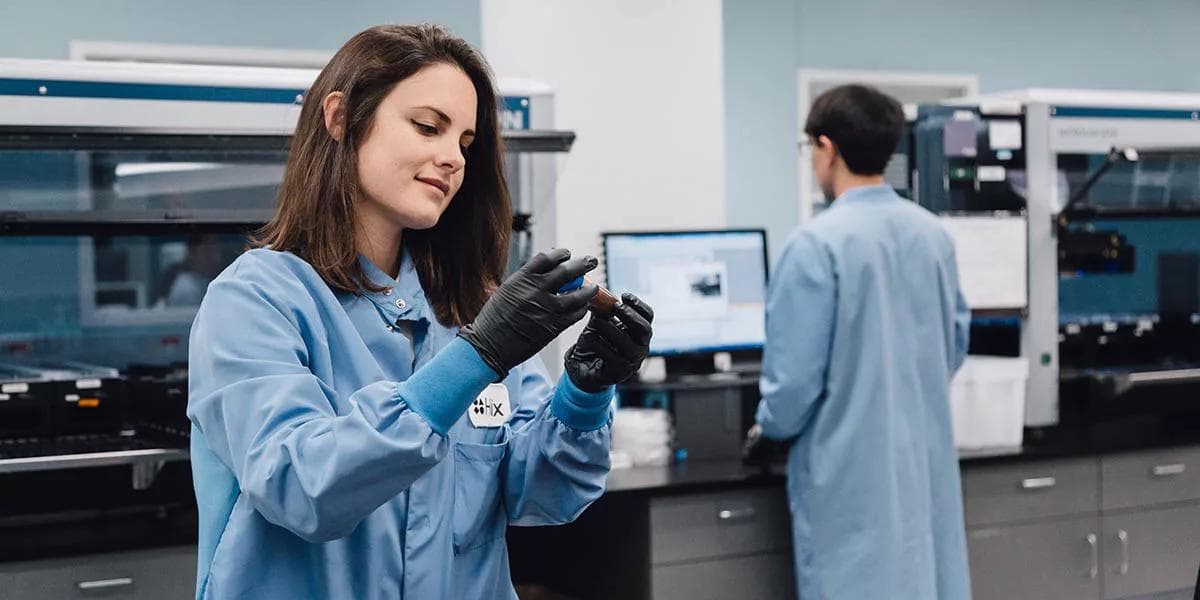
In the past, we’ve shared stories of some truly remarkable scientists: C.C. Li, a population geneticist who inspired a generation of scientists after defying the Chinese communist party and continuing to teach mendelian genetics; Dr. May Edward Chinn, a pathologist and physician who was, for many years, the only African-American woman practicing medicine in Harlem—and the list goes on. But today, we’re looking inward to some of the inspiring women in science at Helix to celebrate International Day of Women and Girls in Science. We sat down with some of them to learn more about who they are and what motivates them.
Charlotte Rivera-García
Genomics Data Analyst
What is your job title and description?
I review our sequencing results as part of the data release process of our clinical samples. I find this role very rewarding because in a way, I ensure that our customers get the highest quality results and get to enjoy their journey with them.
What is your background in science?
I did my Masters in Biomedical Engineering at the City University of New York City College (CCNY) and my undergraduate studies at the University of Pennsylvania, also in bioengineering. I gained most of my experience in data review and quality from working at a small carrier screening start-up in NYC right after college.
Do you have any advice for someone looking to start a career in science?
Keep an open mind when it comes to job opportunities. Science can be found in almost any industry and behind many different job functions. For example, my science background really enables me to understand the data that I review and how it behaves, but I’m not in the laboratory doing hands-on science.

Jasmine Dhaliwal
Curation analyst
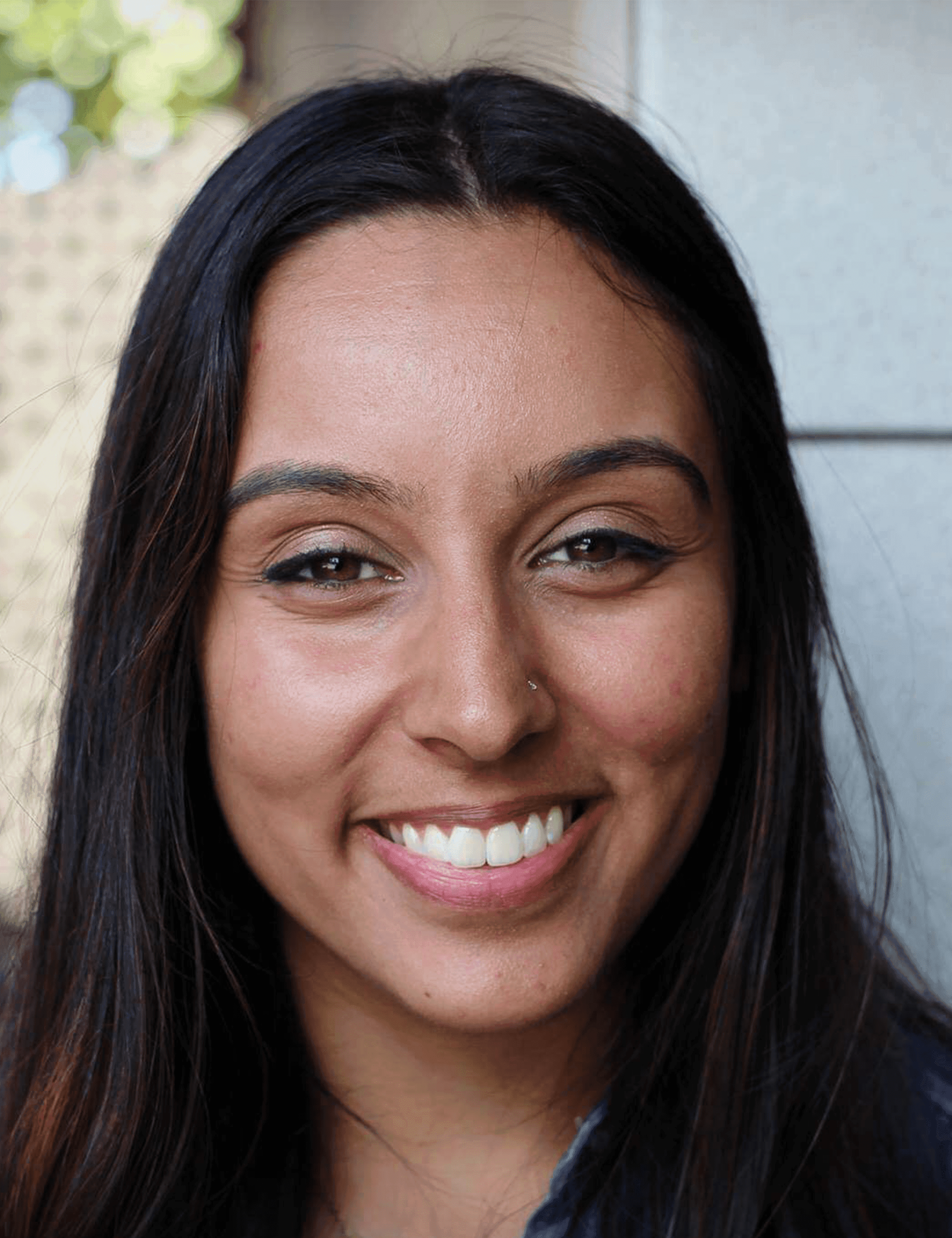
What is your job title and description?
I’m a curation analyst on the Partner Science team. I work with the rest of the science team to vet and support the scientific insights offered on our platform by assessing the quality and limitations of genetic research. I really like reading about the different kinds of research being performed in this field and am interested in the various ways that these findings can impact individuals.
What is your background in science?
I completed my BS in Genetics at UC Davis and have worked at a few different biotech companies since then. I began my career doing bench research but eventually realized that my passion did not lie in the wet lab. From engineering proteins in a sequencing lab, to developing DNA and protein based assays for point-of-care testing, and to now working at Helix, I have been exposed to many different facets of the genetic testing industry.
Why did you choose to work with Helix?
I am passionate about increasing the accessibility and understanding of genetics—especially for individuals from underrepresented populations that have not historically been included in genetic research—and am excited to work at a company that is committed to doing just that!
Gloria Lee
Director, Regulatory Affairs
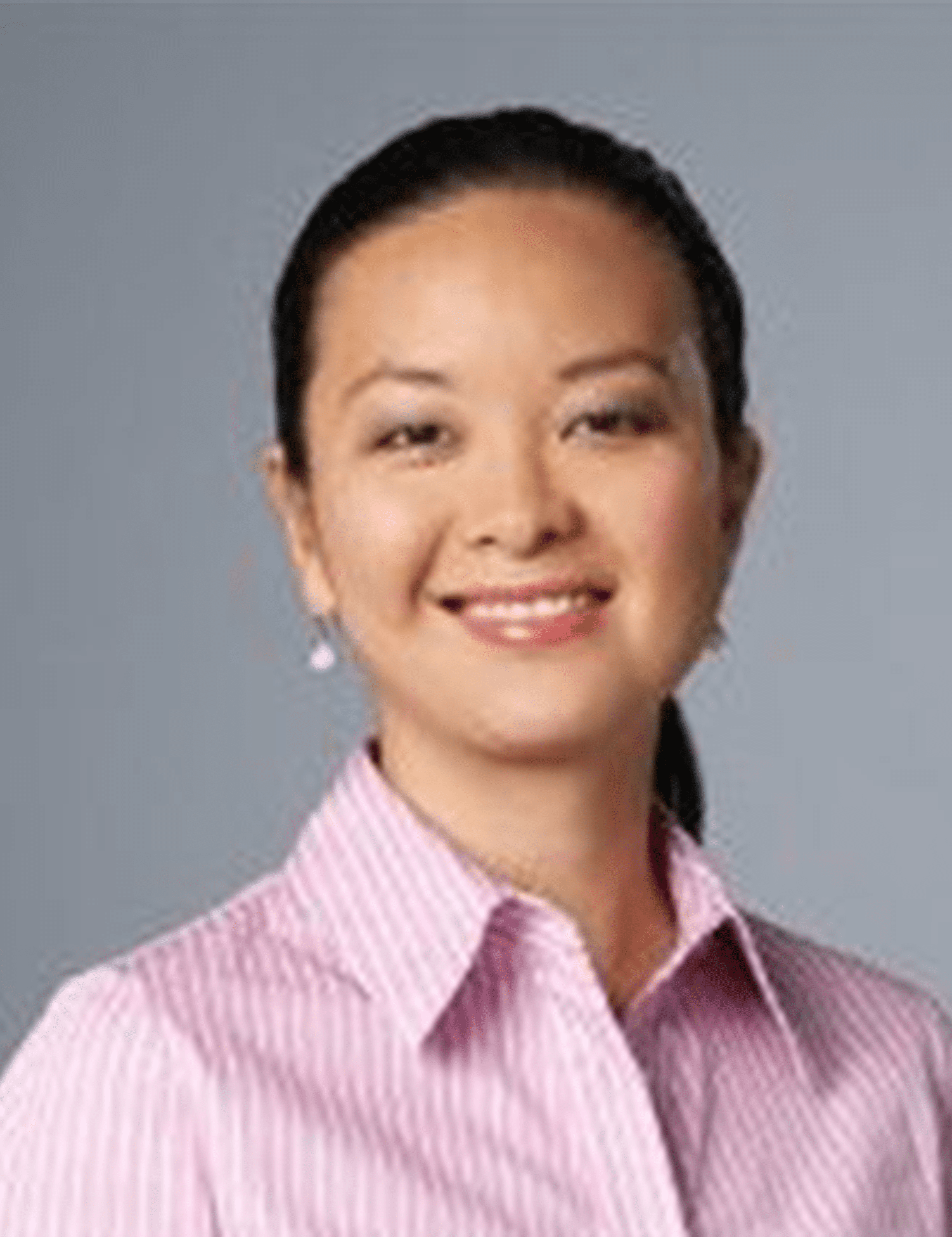
What is your job title and description?
As the Director of Regulatory Affairs, I am responsible for developing the regulatory strategy and pathway for commercializing direct-to-consumer genetic health apps in the United States. I work directly with the FDA to negotiate validation and submission requirements for these type of products.
My role at Helix is highly cross-functional which is the best part of my job. In addition to working directly with the FDA as my external client, I work with our Partner Managers to provide regulatory guidance to our partners. I work with Business Development and Marketing to ensure that our advertising and promotional materials are in compliance with the Federal Trade Commission, and various health agencies. I also work closely with Quality, Bioinformatics, Product, R&D, and Project Management to ensure that we are developing our products and generating documentation that meet FDA requirements for a successful submission.
What is your background in science?
I have a Bachelors in Science, with a speciality in Biology and Pharmacology at McMaster University. This was an extended co-op program where I spent a total of 1.5 years on work terms at SmithKline Beecham Pharmaceuticals in Regulatory Affairs and at GlaxoWellcome Pharmaceuticals in Medical Information. Immediately following my undergraduate studies, I completed a 6.5-year PhD in the field of neuropharmacology at the University of Toronto, studying how specialized cells along the blood brain barrier function to protect the brain from various toxic drugs, including anti-HIV drugs.
Do you have any advice for someone looking to start a career in science?
Don’t limit yourself to the traditional science careers like academia or as a bench scientist. For many positions in certain industries, a strong science background is an asset even if not directly related. For example, if you have a strong science background but you enjoy communicating your ideas in writing and in legalese, Regulatory Affairs could be an option. If you are good at drawing, medical textbook artists are in demand.
Liz Cirulli
Principal Scientist
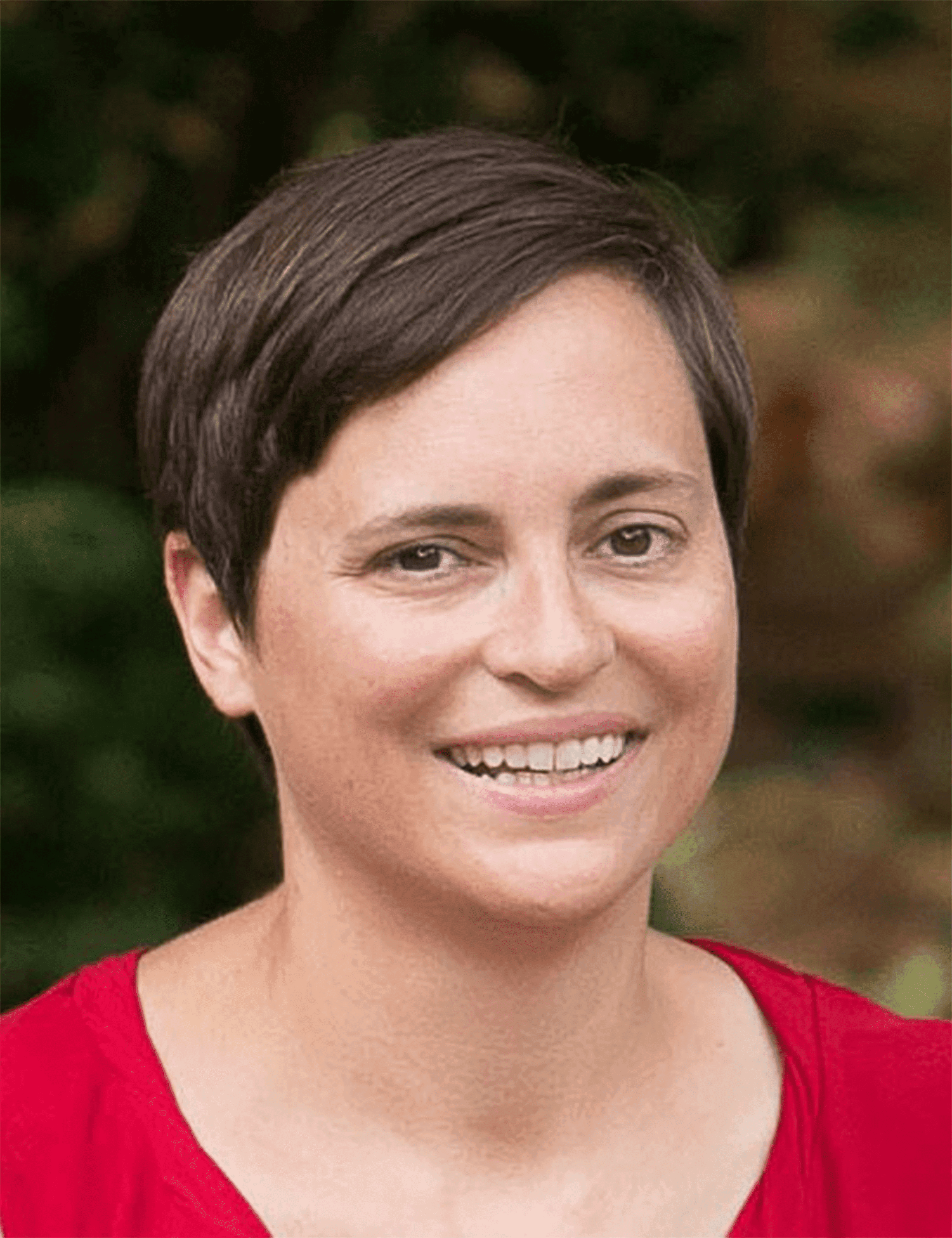
What is your job title and description?
I design and execute research on how genetic variation influences differences between people.
What is your background in science?
I earned my PhD in Genetics and Genomics at Duke University, where I later became an Assistant Professor. During that time, I led projects measuring healthy volunteers for a diverse array of interesting traits—night vision, contagious yawning, face recognition—and related those measurements to the volunteers’ DNA.
What topics in science are the most exciting for you?
I love identifying novel ways that people differ and figuring out how to quantify and measure those differences, and I especially love comparing those differences to the rare and unique genetic variants that people carry. I enjoy being a scientist because I get to solve puzzles, and human genetics is one of the most interesting puzzles out there. I’m really excited to be at Helix because we are building up a large and unique dataset that will enable a wave of novel discoveries, giving people the ability to better understand themselves using their genome.
Shishi Luo
Senior Bioinformatics Scientist
What is your job title and description?
I develop algorithms for calling parts of the genome that have complex patterns of variation—in other words, not single nucleotide changes, but chunks of DNA that are different between people. It interests me because the problems are challenging and the applications are broad.
What is your background in science?
I did my PhD in Mathematics at Duke University. My areas of expertise are in probabilistic modeling and computational biology. I worked a lot in the area of viral evolution (influenza and HIV) before moving into the field of human genetics.
Do you have any advice for someone looking to start a career in science?
I can only speak for scientific research. You should expect to make mistakes and get stuck a lot. But on the rare occasions when you finally understand something, it’s really quite rewarding.
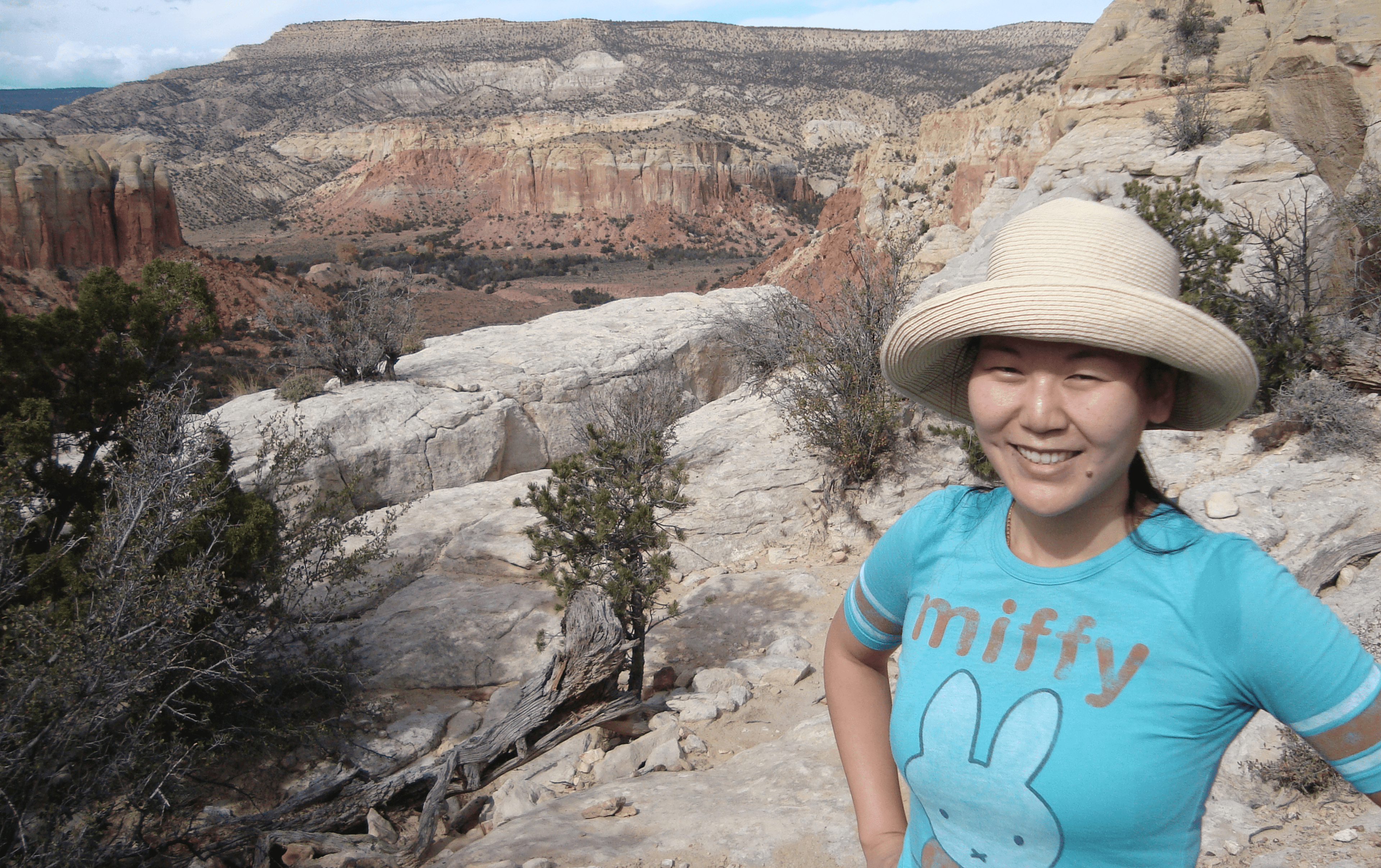
Sharon Briggs
Product Designer
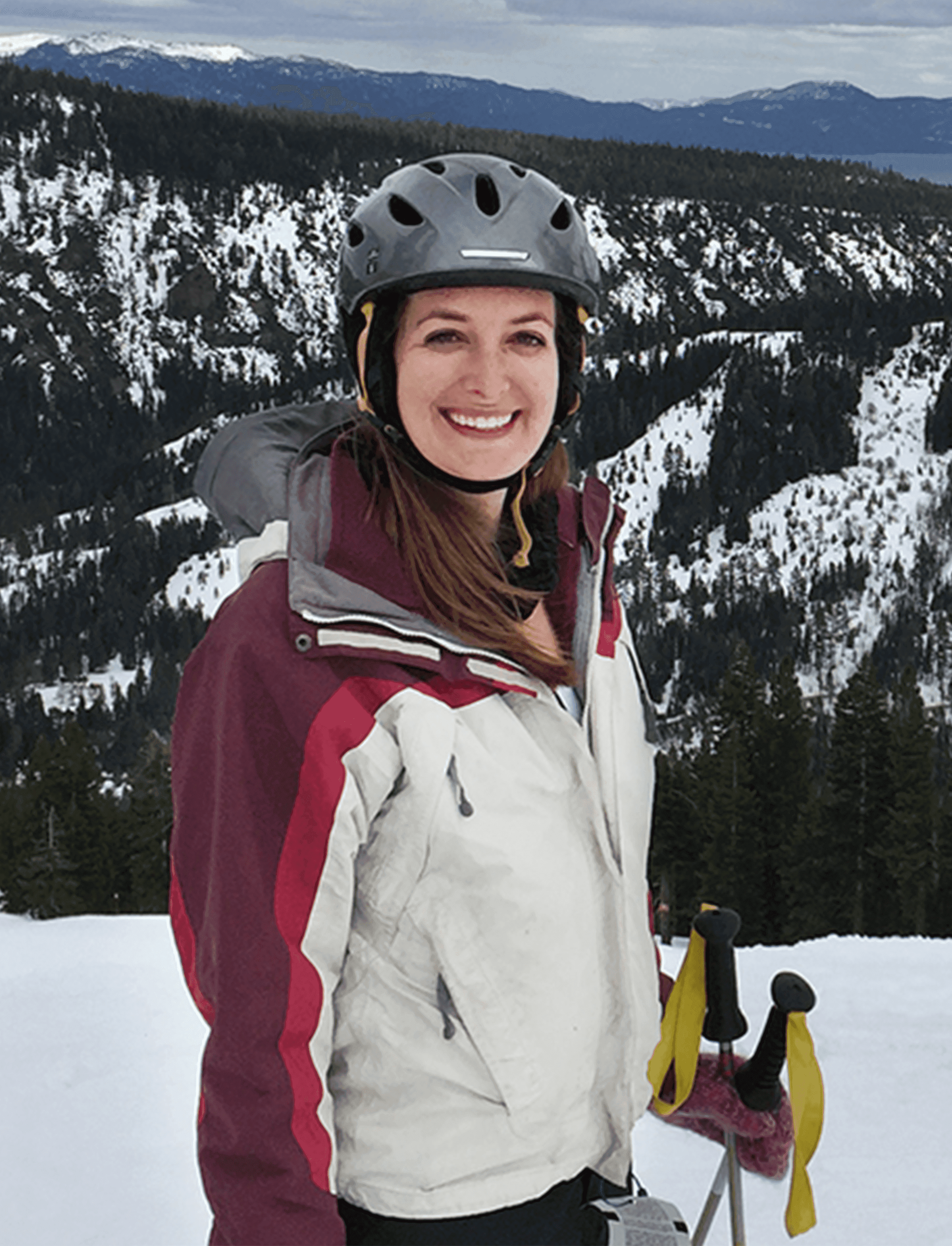
What is your job title and description?
I am a product designer / scientist. I make sure that genetics is at the heart of all the products we develop. This means making sure we use the right language, that we display the information accurately, and that the user walks away having learned something about themselves, and genetics.
What is your background in science?
I did a PhD in Genetics at Stanford University. My work focused on understanding biology that is unique to female cells because they have two X chromosomes (while men have one X and one Y chromosome). After starting at Helix, my focus has shifted towards the fascinating field of human genetics and science communication.
What topic(s) in science are particularly interesting to you?
I am really interested in reproductive and developmental biology. Learning about human development can teach us about human physiology under healthy, and diseased states. It’s a fascinating process! Anything we can do to better understand development and try to prevent diseases is exciting.
Jasmin Rizko
Bioinformatics Analyst
What is your job title and description?
I am an Analyst on the Bioinformatics team, and we are responsible for maintaining and improving the software that analyzes and interprets a person’s DNA once it’s been sequenced and digitally stored. I investigate, research, and develop code as needed—and currently, I also handle some Project Manager (PM) responsibilities. The amazing breadth of work that I do is part of why I accepted a job at Helix—I get exposed to so much new information on a daily basis and I have had so much fun and support every day that I’ve been here. No matter how long I stay here or where I go next, I know I’ll be prepared for anything because I have such a great team and so many learning opportunities here.
What is your background in science?
I have a Bachelor’s of Science in Mathematical and Computational Biology from Harvey Mudd College, which is a small engineering school in Claremont, CA. However, even though I’ve graduated with a specific degree, the curriculum at Mudd tries its best to prime students with a solid foundation in all of STEM, including math, physics, chemistry, biology, engineering, and computer science. As a result, I still call myself a scientist as opposed to a biologist.
What excites you about the future of genomics?
Listening to people talk about genomics and answer questions sparks new ideas for how I could incorporate genomics into my own life and play my part to advance it further. I personally think that medicine will slowly but surely incorporate genomic insights like the kind we provide at Helix and begin to offer much more in the way of preventative medicine. Then again, something completely different could happen first. We’ll just have to wait and see!
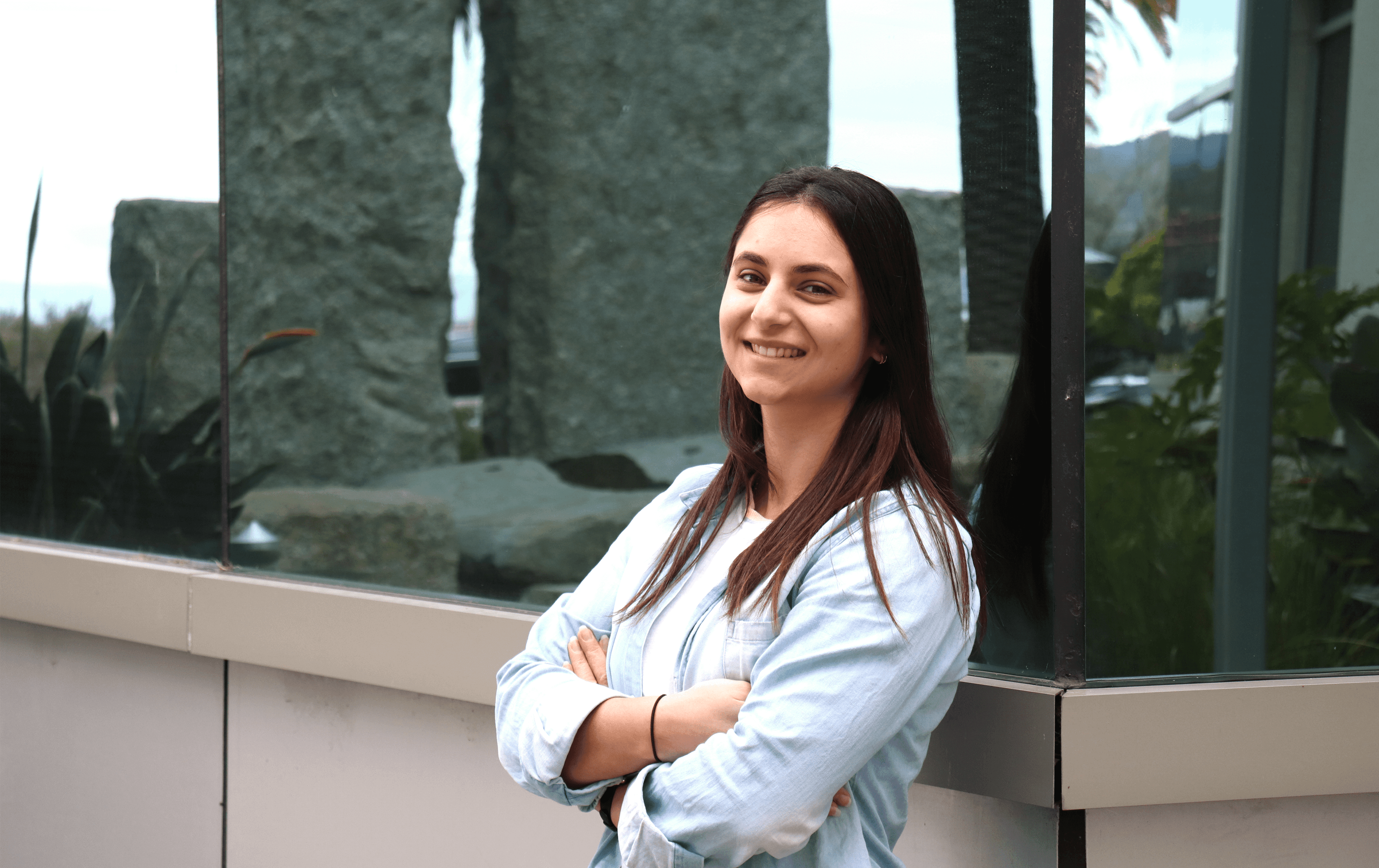
Yan Wei Lim
Senior Scientist
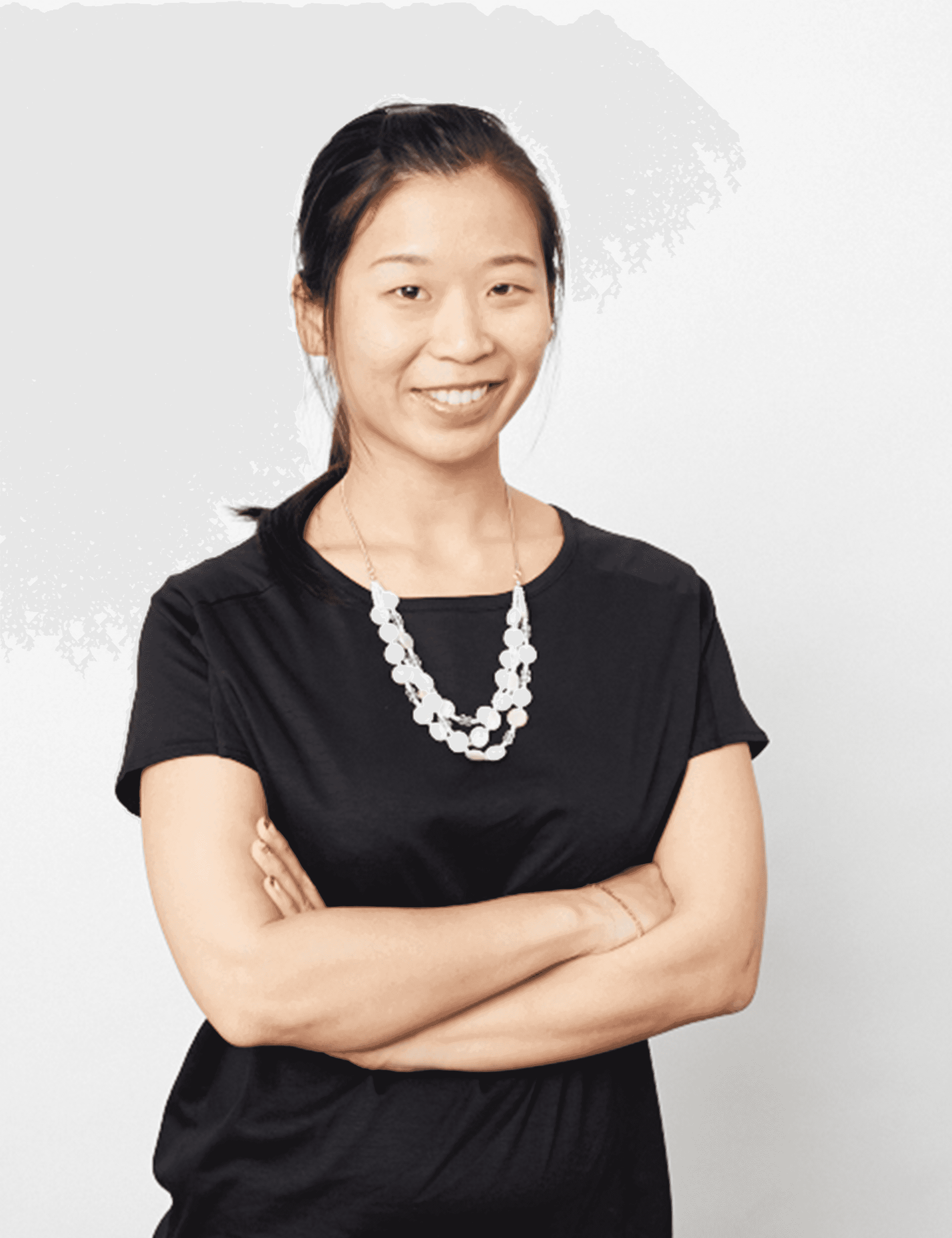
What is your job title and description?
I am a Senior Scientist on the Laboratory Research and Development team working on assay development. In this role, my focus is on finding the most efficient and cost-effective ways to both process our customers’ saliva samples and generate the highest quality Exome+ sequencing data. As a research and development scientist, I have to be at the forefront of molecular and sequencing technologies to ensure that we use the best methods and give our customers the best possible data.
What is your background in science?
My mother was a nurse and so I grew up in a hospital (because of her busy schedule). I was always intrigued by human health and wellness, and aspired to do something about it. I did my Bachelor in Biomedical Science in the United Kingdom with the hope that I would learn more about health and diseases. When I graduated, I decided to explore the cutting-edge technologies in this field. I joined the Genome Institute of Singapore where I was exposed to advanced sequencing methods and technologies. I did my PhD in Cell and Molecular Biology, focusing on using an ecological method to study the bacteria and viruses in the lungs of cystic fibrosis patients.
Why did you choose to work with Helix?
I used DNA sequencing to help understand diseases and improve the lives of other people during my time in Singapore and during my PhD. I have also set up two small sequencing laboratories, one of which was on a boat for an expedition across the Pacific Ocean! When I came across the opportunity to help set up one of the world’s largest sequencing facilities with the mission to empower every person to improve their life through DNA, I did not hesitate.
Julie Hamlin
Clinical laboratory scientist
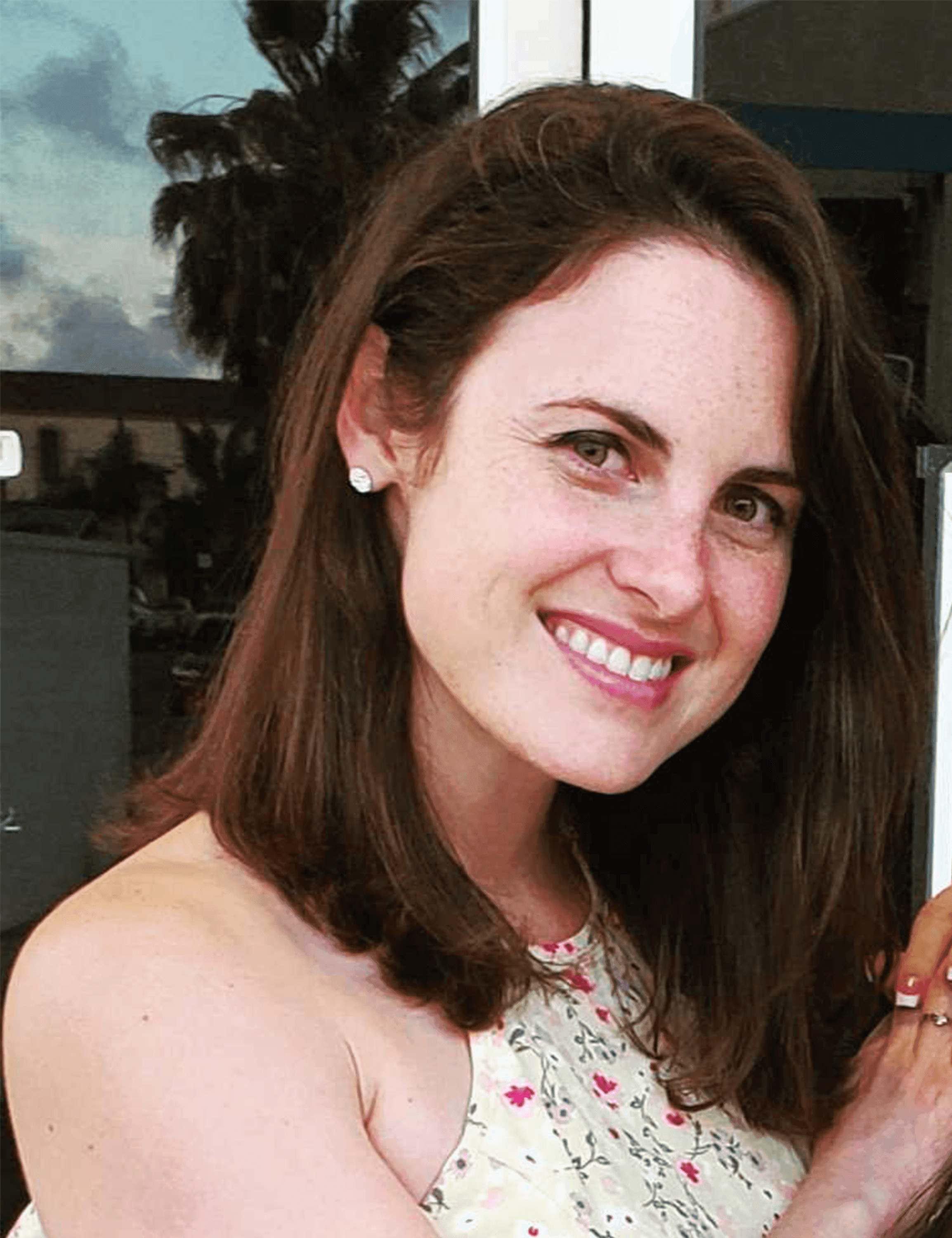
What is your job title and description?
I am a clinical laboratory scientist (CLS) specializing in molecular biology. As a molecular CLS, one of the frankly coolest things to me is to work with Next Generation Sequencing (NGS) technology on a massive scale. My previous experience was in a healthcare setting, where we analyzed hundreds of genes or less of hundreds of patients at a time. Now at Helix I work in a manufacturing setting, sequencing tens of thousands of genes of thousands of people at a time. Impacting people on a global scale is both a very humbling and epic experience.
What is your background in science?
I received my Bachelor of Science in Biochemistry and Cell Biology from UC San Diego. I was excited and lucky to get a job right after college at a private cancer diagnostics lab. My job was unique in that I worked at a lab but did not work “on the bench.” Rather, I reviewed reports and lab results from our pathologists and scientists before being sent to our clients (oncologists) and their patients. After several years of doing this, I became very familiar with life in a clinical setting, directly impacting the lives of patients. I quickly discovered that molecular diagnostics intrigued me the most, and I missed wet bench work. I was privileged to attend a post-baccalaureate training program for aspiring clinical molecular scientists at this same lab, and since then I’ve now been a licensed CLS for several years.
For those who haven’t tried a DNA test yet, what would you want them to know most?
Take a DNA test to get to know yourself better, but don’t let it define you. We are all truly a combination of “nature” and “nurture.” Just like books are so much more than simply words on a page, we are so much more than just our DNA. But just as books can improve our understanding of the world around us, so too our DNA can be a really powerful tool in understanding ourselves better.
Are there any role models in science that have inspired you?
Sally Ride! As the first American woman in space, I thought it was so impressive how as a woman she pioneered a career in science that was literally out of this world. I find it so ironic that my path instead took me to studying the closest thing to home: our DNA. Still, I’m always in awe of her pursuit of understanding life through science, something I wanted to do ever since I was a little girl. I even got to help name one of our sequencers after her!